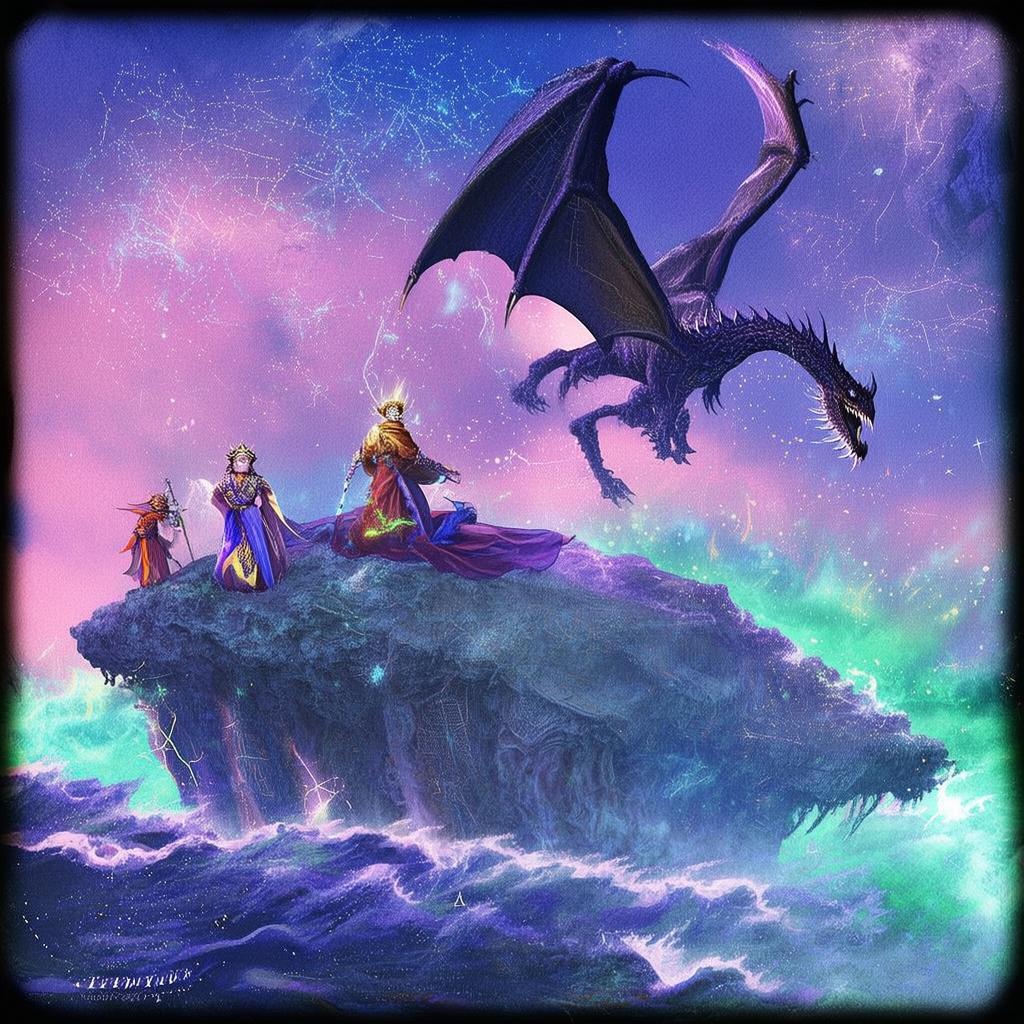The Picasso Principle: The Labyrinthine Legacy of a Cubist's Enigma
The sun dipped below the horizon, casting long shadows through the cobbled streets of Barcelona. In the heart of the city, a young woman named Elena stumbled upon an old, dusty bookstore. The air was thick with the scent of aged paper and the promise of untold stories. She wandered through the aisles, her fingers brushing against the spines of ancient tomes, until her eyes caught sight of a peculiar volume bound in leather.
The Picasso Principle: The Cubist's Cryptic Canvas of Curious Creatures and Creativity. Intrigued, she pulled it from the shelf and opened it to find a series of intricate drawings that seemed to pulse with life. Each illustration was a patchwork of geometric shapes and abstract forms, a mosaic of the human psyche. There, nestled between the pages, was a cryptic note: "Seek the labyrinth of the mind, where Picasso's creatures roam free."
Elena's heart raced as she realized the significance of the words. She had always been drawn to art, particularly Picasso's Cubism, a movement that defied the norms of traditional painting and embraced the chaos of the human experience. She knew that Picasso's works were not just images on a canvas; they were windows into the artist's mind, a labyrinthine maze of creativity.
With the book clutched tightly in her hands, Elena set out on a quest that would change her life forever. She began by visiting the Picasso Museum, where she spent hours poring over the master's works. She saw in his paintings the same chaos and beauty that the note had promised. There were faces contorted with emotion, creatures with multiple limbs, and landscapes that seemed to defy the laws of physics.
One evening, as she was leaving the museum, Elena met a mysterious man. He introduced himself as Dr.慕容, a historian who had dedicated his life to studying Picasso's art. He told her that the labyrinthine legacy was more than just a cryptic note; it was a quest to unlock the true meaning of Picasso's Cubist enigma.

"I have a map," he said, handing her an ancient, tattered parchment. "It leads to a place where Picasso's creatures roam free. But be warned, the path is fraught with peril, and only the truly brave can navigate its twists and turns."
Elena took the map and thanked Dr.慕容. She knew that her quest would be challenging, but she was determined to uncover the truth. She set out the next morning, following the map through the winding streets of Barcelona until she reached a grand, old house at the edge of the city.
The house was abandoned, its windows boarded up and its doors locked. Elena broke into the house, her heart pounding with fear and excitement. She found herself in a vast library filled with books on art and philosophy. On a shelf, she noticed a book titled "The Cubist Labyrinth: A Guide to Picasso's Mind."
She opened the book and read the following passage: "The labyrinth is not a physical place, but a metaphor for the human mind. To find Picasso's creatures, one must navigate the maze of one's own thoughts and emotions."
Elena understood that she had to delve deep into her own psyche to find the creatures that Picasso had captured in his art. She began to draw, channeling her innermost fears and desires onto the canvas. The creatures that emerged were strange and beautiful, a blend of her own subconscious and Picasso's Cubist vision.
One night, as she was working on her drawings, Elena heard a whisper. "You have found us," it said. She looked around but saw no one. She continued to draw, and the creatures began to move, to come to life. They surrounded her, their eyes filled with wonder and curiosity.
One creature spoke. "We are the manifestations of Picasso's mind, the embodiment of his creativity. You have unlocked the labyrinth of the mind, and now you must decide what to do with this power."
Elena realized that she had the power to create her own reality, to bring Picasso's creatures into the world. She chose to use this power for good, to inspire others to embrace their creativity and to see the beauty in the chaos of the world.
As she finished her last drawing, the creatures gathered around her, their eyes shining with gratitude. One by one, they vanished, leaving Elena alone in the room. She opened the door and stepped outside into the night, her heart full of purpose.
The Picasso Principle had changed her life, had shown her that creativity is not just a gift, but a responsibility. She knew that her journey was far from over, but she was ready to face the world with the eyes of Picasso, to see the enigma in every creature and to embrace the beauty in every moment.
Elena returned to her studio, her mind brimming with ideas and inspiration. She began to create, to pour her heart and soul into her art, knowing that she was part of something much larger than herself. The Picasso Principle had not only unlocked the secrets of a master's mind but had also ignited a spark within her own soul, a flame that would burn brightly for years to come.
✨ Original Statement ✨
All articles published on this website (including but not limited to text, images, videos, and other content) are original or authorized for reposting and are protected by relevant laws. Without the explicit written permission of this website, no individual or organization may copy, modify, repost, or use the content for commercial purposes.
If you need to quote or cooperate, please contact this site for authorization. We reserve the right to pursue legal responsibility for any unauthorized use.
Hereby declared.









